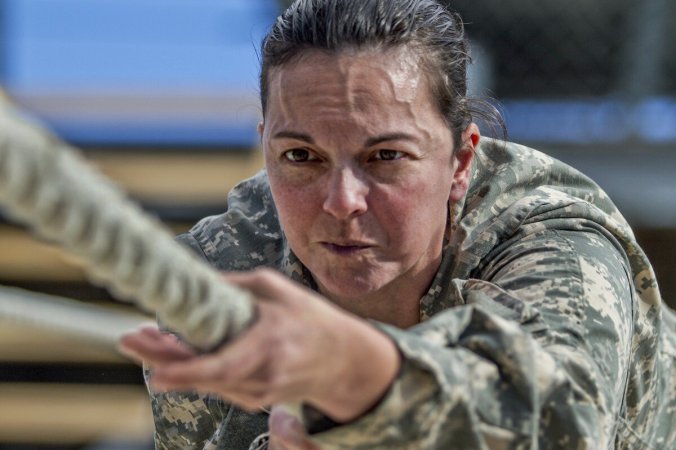Sleep is, apparently, one of those things that medical professionals tend to claim is vital to not dying. While in the military, you’ll get so little sleep that your body grows accustomed to functioning at a high level with just four hours of non-continuous sleep.
For one reason or another, putting aside large chunks of time for that vital sleep just doesn’t happen. So, troops quickly learn how to rack out at the drop of a dime while smothered in their gear. Or they find a nice, cozy spot underneath a HUMVEE in the glaring Afghan sun with only their rifle and pebbles to keep them comfy.
It’s really an impressive skill — and it’s usually among the first truly mastered by even the most average of recruits.

The biggest contributing factor to this mastery over snoozing is that troops are constantly on the move. The human body is only meant to exert so much effort and that limit is pushed daily by all troops. Normally, the body needs to both sleep regularly to rebuild damaged muscles and eat healthy foods to replenish what’s lost.
Troops supplement this by maintaining a higher-than-average caloric intake. It’s assumed that an average active male in their twenties should take in about 3000 calories to function normally. The average deployed troop takes in three MREs per day, which totals 3,750 calories.
Contrary to popular belief, eating calories is actually a good thing if you’re moving about as much as troops do. This intake means that the body has more to work with when it finally has time to recharge.
Troops exhaust themselves by being constantly in motion. When an opportunity to knock out arises, even if it’s just for a few minutes, it will be seized.

(U.S. Army photo by Spc. Charles M. Willingham)
The next contributing factor is that troops are generally sleep deprived and have their sleep cycles interrupted constantly. Starting in basic training, a drill sergeant could wake everyone up at 0100 for sh*ts and giggles, have a special someone pull fire guard at 0300, and wake up for the rest of the day at 0500.
The body does most of its recharging during cycles of REM sleep, the first of which starts after roughly 45 minutes of sleep and again in another 45 minutes. The rigors of training, however, rarely permit troops to achieve multiple cycles of REM, so the body tries to recharge as much as possible during those first 45 minutes. As this pattern of interrupted sleep becomes the norm, the body adapts and requires less time to get into REM cycles.
In essence, this pattern resembles polyphasic sleeping — which is a terrible thing to try without adding in a solid, 6-8 hour chunk of rest into the mix.

The body actually can’t handle this type of sleep deprivation but, by sheer power of will (and a metric f*ck-load of caffeine), troops can shut off their body’s warning signs.
Troops’ bodies can endure this for a few days, typical of a combat mission while deployed, but a dearth of sleep can’t last for weeks. There will have to be a time when that troop hits their rack to get a full night’s rest.
And when they do, it’s some of the best sleep they’ve ever gotten.










